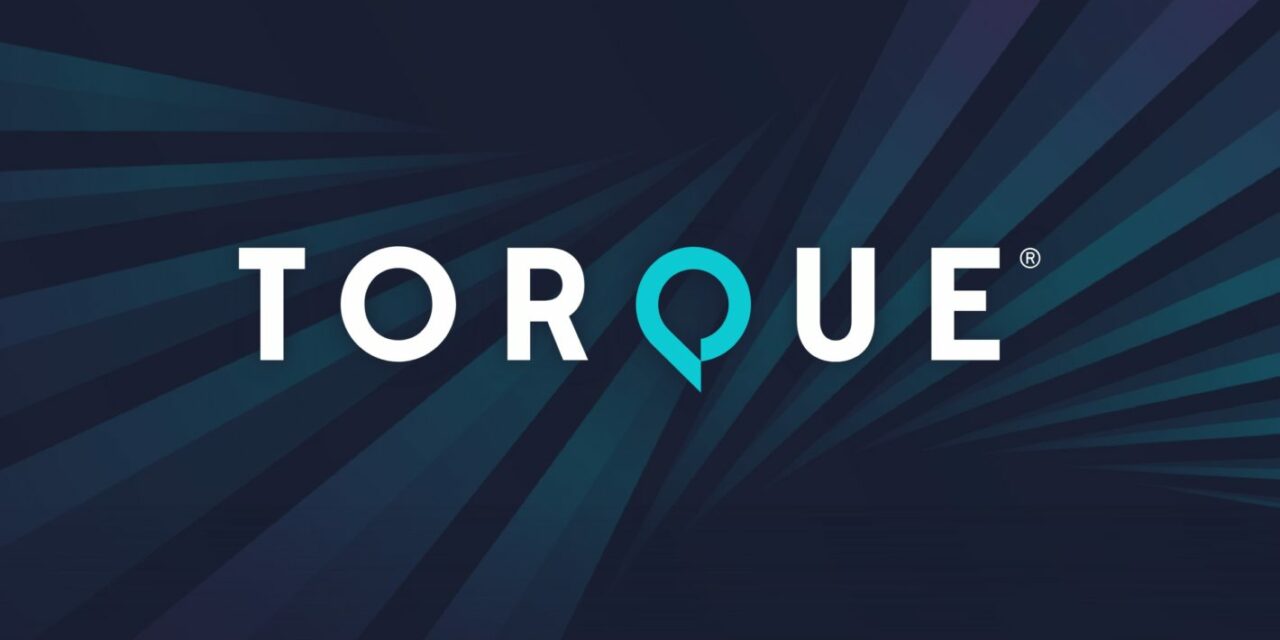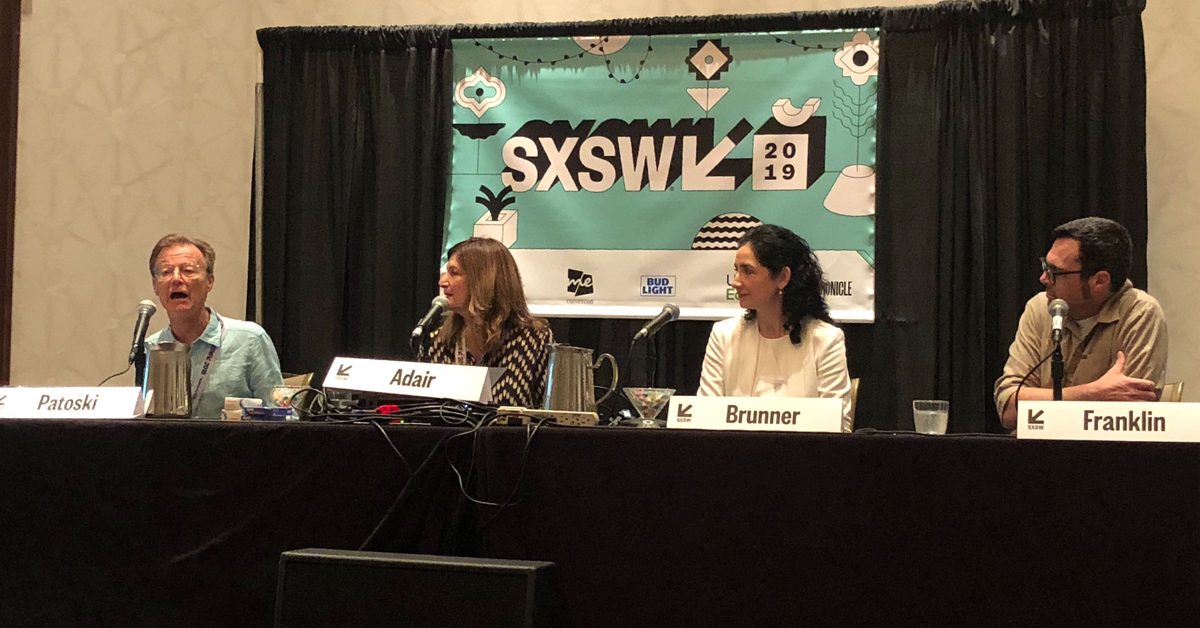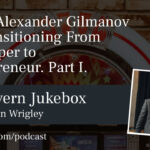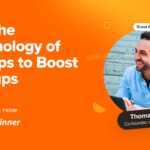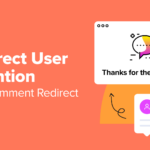Welcome to Press This, the WordPress community podcast from WMR. Each episode features guests from around the community and discussions of the largest issues facing WordPress developers. The following is a transcription of the original recording.
Powered by RedCircle
Doc Pop: You’re listening to Press This, a WordPress Community Podcast on WMR. Each week we spotlight members of the WordPress community. I’m your host, Doc Pop. I support the WordPress community through my role at WP Engine, and my contributions over on TorqueMag.Io where I get to do podcasts and draw cartoons and tutorial videos. Check that out.
Last week was WordCamp Europe 2023, one of the largest WordPress events in the world. This year’s event was hosted in Athens, Greece with thousands of attendees. My guest today, James Dominy, was one of those attendees who also gave a workshop titled “How I Learned to Stop Worrying and Love our AI Rulers”. James is a Technical Architect at WP Engine, and we are gonna talk to him about his speech. And as someone who is still very much concerned about AI and WordPress, we are gonna ask James to help, alleviate my concerns or confirm them. I guess we’ll find out in this episode.
James, thank you so much for joining us today. Let’s start off with just give us a brief description of how you got into WordPress.
James Dominy: So I am not into WordPress, actually, my wife is into WordPress. I share my affiliation with WordPress with you in that I work for WP Engine, but I have been involved entirely exclusively on the hosting infrastructure side. But I have on occasion helped my wife debug problems in the plugins that she writes for her clients.
She works for a small agency in Ireland.
Doc: And your talk about WordCamp Europe was titled, “How I Learned to Stop Worrying and Love Our AI Rulers.” Are robots coming for the jobs of WordPress devs and content creators?
James: Okay. Yeah, it’s straight to the heart of the matter.
Doc: Straight for it.
James: Yes and no. Let me just confirm your beliefs there. In brief, the take home of my talk was, AI isn’t there yet, and if you are in the WordPress community, actively doing things, whether it’s as a blogger, whether it’s as a freelancer, whether it’s as a plugin developer, a core Contributor, working in an agency, any of those things, you are probably already being exposed to AI like ChatGPT or Bard, and you are probably safe.
I think we’ve all seen those memes going around of spectacular AI fails. Like, give me a synonym for journey starting with D and it confidently answers trip. So, I think for a lot of things we are safe as long as we ourselves learn to use the AI tools now. Because we’re going to be competing against other people who are using AI tools to accelerate their own jobs.
I think the real danger lies in the incoming generation to the WordPress community. And I mean, a lot of what I’m talking about doesn’t actually apply exclusively to the WordPress community. It applies to so many jobs and lives and things in our lives beyond WordPress.
But WordPress obviously was the focus of WordCamp. So the way I characterize it is we need to be careful not to pull the ladder up behind us. AI as it stands now is good at replacing the easy tasks, the boilerplate tasks. The go-to example for me at WordCamp was something like, Hey, my editor needs me to produce a blog article on “10 Things to do in Athens at Night” whilst I’m at WordCamp. That’s something ChatGPT is good at, but when you ask it to give you a hundred things, you are probably gonna find repeats.
You might also just occasionally, because there is inherent randomness in the AI output, find that it recommends something really dodgy. Like, Hey, go and visit this Nazi memorabilia plate collection in some random guy’s house, because it happens to be on Google Maps or there was an article about it and that somehow accidentally got sucked into the training set. So, what that means is that the job now, without AI is generate words, and then they go to a sub editor. The job when AI comes in is gonna be generate words with AI, and you become that editor. You become the fact checker. And it’s much the same on using AI to assist in coding.
Doc: Mm-hmm.
James: AI is good at simple tasks. It’s not good at combining completed simple tasks into more complicated systems. Not yet it, it will get there. But what that means is that the job that you might have given, to your intern or your junior programmer, on the team would be, go and do this fairly boilerplate thing, come back to me and then I, as a senior engineer on the team, might go and check it and make sure that it works.
And I know in the first place to ask for that task to be done. Whereas AI doesn’t know yet that that is a task that needs to be done to fulfill a greater task. That’s what I mean by combining simple solutions into more complex solutions is one of the weaknesses in AI at the moment. But that will probably go away.
What that means though is I get to the point where I can issues those tasks and know what tasks need to be done. I get to the point where I can read through an article and go, that doesn’t sound right, or that something’s wrong there, or, oh, I know I should not be recommending Nazi memorabilia in our particular magazine. That knowledge and those skills comes through having made the mistakes, doing the easy tasks. And what I mean by pulling the ladder up behind us is if those easy tasks are all gonna be done by AI in the future, we’re still gonna need people to direct AI. But how do we get new people coming into the community, into the field, who have learned on the basics?
Doc: Hmm.
James: And thus graduated to the point where they are able to use AI effectively for the more complicated problems.
Doc: I think I 100% agree with a lot of what you’re saying. AI is not quite there yet. It’s not gonna be replacing anybody yet. My bigger concern is more that, a writer will lose their job and get replaced by AI only to get rehired back to edit the AI and do just as much work, if not more work than they were doing before.
Or a coder for the same matter, right?
James: Yeah, absolutely.
Doc: Lose their job and then just end up rewriting, ChatGPT’S code or Co-pilot’s code. But that’s capitalism. That’s not necessarily AI. It’s just more of like AI being used as the excuse to kind of accelerate that behavior. But in five years from now, do you think that that won’t even be the case?
That like AI might be good enough to not think up a website, but code a website with very little editing afterwards?
James: Probably, it’s very hard to tell. I think that where we are on the AI curve.
Doc: Mm-hmm.
James: My personal belief is that it comes down to computation and memory, and the more that we throw it at, the larger the models we can create and the larger the models we can create, the more context the AI can use to generate its output.
And the more context it has, the better the results are gonna be. I think there’s some fundamental things that people perhaps don’t generally understand, that is, AI can’t innovate. They are trained and the way that they work, they spit out output that matches something they’ve been trained on within some random variation. That’s a very high level overview of it.
Can an AI write a new novel? Can it be creative? Not now. I mean, you can certainly ask AI to transpose your peom with the style of Shakespeare and that might make it better. Write me a peom in the style of Shakespeare about a jug of water on the table, because that’s what I’m staring at right now.
Can it do it? Yes. Is it being creative? That’s a deeply philosophical question. Will AI get better at solving complex tasks with more memory and more computation? Yes, absolutely. But it’ll only be able to solve tasks that have already been solved by a human or if not, it will need a human to ask them to solve the task in the first place.
Doc: And I think that’s a good spot for us to take a quick break. I realize I’ve been talking about my fears so far this episode when we come back with Press This and James Dominy, I’m gonna ask James to gimme the good news about AI and cheer me up and let me know in a realistic sense, what are some of the ways that, WordPress can benefit from this.
So, stay tuned for more Press This right after the short break.
Doc: Welcome back to Press This, a WordPress Community podcast. I am your host, Doc Pop. Today I’m talking to James Dominy, a Technical Architect at WP Engine, who recently gave a talk at WordCamp Europe 2023. The talk was titled “How I Learned to Stop Worrying and Love Our AI Overlords.” And I love that title.
Obviously we’re all fans of Peter Sellers. Right. And you saidcthe Simpsons reference was also in there. What’s the, what’s the Simpsons reference I’m missing
James: The Simpsons reference is the newscaster whose name I now forget, who has this recurring phrase whenever something happens, “I, for one, welcome our new AI overlords, or I for one, welcome, our new alien overlords,” whatever the flavor of the episode is. Whoever’s taking over Springfield.
Doc: And so on the first 10 minutes of this episode, I talked to you about some concerns I have and just other folks might have about AI and we mostly focused on, I guess, economics and how it affects jobs. This talk sounds like it might be optimistic.
I didn’t get a chance to see your workshop, but do you generally believe that there will be more opportunities created by AI than challenges?
James: Hard to say. I’m not sure that I will actually be dispelling your nervousness. To be fair. I think AI presents a massive opportunity for so many things. I think one of the things that I’m most excited about is the potential to use AI in the WordPress community to make WordPress more sustainable, more energy efficient, and part of that can be AI analysis of the code.
Again, it’s not there yet, but it will be in five years. The other thing is using AI in our hosting infrastructure to manage the way we do things and maybe move somebody’s WordPress installation from one company’s infrastructure to another because they are greener or something.
So like that for me is an incredibly exciting opportunity. I think that also there are a lot of other ways that AI can be used in terms of generating content. Like the idea with AI, one of the great things is I can write 10 articles now in the space that I could write one. And I can A/B test my articles, I can A/B test my campaigns and we’re already doing this manually, but the scope increases hugely.
So I think there’s gonna be a net economic benefit for people who make money out of WordPress as well. Assuming that they get on board, and they leverage the tools that are becoming available. That doesn’t take away from the fact that, if we mishandle the way that we do this, I’m not gonna say that there is disaster, but I think that, there are risks and I think, a lot of people are thinking about the obvious risks.
But I think the real ones that are gonna get us, are gonna be those nuanced risks. Like the nuanced risk for us at the moment for me is the five years time we’re not going to have a skills pipeline of people coming into the WordPress community because we haven’t handled this well. We haven’t engaged with it, we haven’t talked about it.
And here’s the bit where I will dispel your nervousness. I was thoroughly encouraged by the set of talks and the schedule at WordCamp EU. AI was a hot topic, and we were talking about it, everyone was talking about it. And I think the best thing about it is that we weren’t talking about the obvious problems with the obvious solutions.
People were digging into the details, people were asking hard questions of the speakers, myself included. And that means that we are engaging with the problem now, and I think that as a community, WordPress will come out on top.
Doc: So, AI was obviously a hot topic at WordCamp EU just because it’s a hot topic everywhere and I guess I’d love to know, what was the, the general vibe of the presentations you saw, but also the general reactions from the crowd? Do you think we have kind of a consensus forming around AI and WordPress at the moment?
James: I don’t know that we have a consensus, but we certainly have a consensus to talk about it. I think the reaction was positive. A lot of the AI talks that were there were, this is how I’m using AI, this is how we could use AI, and it was how we can use AI and agencies, how we can use AI to develop plugins, how we can use AI to optimize SEO I think was one of the ones, I didn’t attend it. I just saw the title.
So people are talking about the opportunity and I think the response was positive. and a lot of the questions that came up, certainly in my talk, were how do we deal with it? I don’t have the answers.
We’ve gotta navigate that. but we are asking the questions, which means that we’re aware of it, which is the first step in solving any problem.
Doc: You are involved in the WordPress Sustainability Channel, and I know that sustainability and websites is important for you and I think that’s a really awesome kind of way to think about like how AI could be used.
As someone who writes a lot of content, one of the things I heard about recently, a nice little AI fix. I cannot remember the name of it. But it was a plugin that had four main features that were all kind of SEO related. One of them was, it would help write, A/B tests for, headlines or maybe like, SEO descriptions based on your content, here’s a couple suggestions for titles.
If you like, we’ll do these tests and if you like the results of the test, you can permanently switch over. And I thought that was pretty cool. The key feature, the big feature for me in AI, and this is so nerdy, but basically it was, reading your article and then helping you write the Yoast SEO short description, which I don’t know why, for me, I could spend, you know, hours writing a thousand words or whatever in a post, and then it comes to writing that meta description, and I’m just like, no, I’d rather jump out this window than write one more description about this thing. So like the idea of having AI do that seems wonderful. So there are these kind of clever fixes for things. Yeah.
James: I totally agree with you. Summarizing something effectively is hard. It’s never been easy. And I remember like writing the abstract for my, stuff in university was, oh Jesus, like I thought I was done. I’ve written my three pages. Do I really need to write this paragraph?
It was always the hard part, and that’s one thing AI is absolutely fantastic at is summarizing stuff.
Doc: Yeah, absolutely. We’re coming close to the end of this first section. I did have one question I wanted to ask you, and I should have given you more time to answer this. WordPress is an open source, platform and everything kind of connected with WordPress is also supposed to have this kind of open source, GDPL licensing or whatever.
When we’re talking about open source and AI for coding, Co-pilot maybe in particular, what are the issues? Can developers use Co-pilot to help write WordPress code that’s supposed to eventually be open source?
James: Oh, gotta prefix this with I am not a lawyer. I don’t know. I think that that is probably one of the other issues that we have to solve, but I think it is one of the obvious issues. I mean that, that’s already come up. People are discussing how, OpenAI and ChatGPT was trained on data sets that weren’t open source.
And now technically the results are legally ambiguous, especially when it comes to using it to code, et cetera. I think that can be cleaned up fairly easily. I mean, I say easily. If we adopt a framework where we say if something is open source, AI can use it and AI can spit it out and we get commitments from the companies that run the big AI’s.
And everyone who writes their own AI model, because that’s coming too, because it’s gonna get easier. If they are more zealous and careful about the things that they train on, from a legal perspective, from a licensing perspective, and eventually it’s gonna be from a content perspective and a regulation perspective, that’s coming and it’s gonna happen, and there’s gonna be a couple of mines in the minefield that we’re gonna hit. But I think, that’s navigable. I think lawyers are gonna make a lot of money whilst it happens. I think on a day-to-day basis that’s probably not gonna affect most people.
As far as WordPress is concerned, there are probably gonna be cases where, we accidentally put some proprietary code into WordPress, and then that becomes a question of does the proprietary licensing of the code survive the transformation that it undergoes through an AI system? Because remember, AI outputs are random or randomized. And so what they’ve really done is they’ve looked at someone’s code and they have reproduced it. And by they, I mean the AI system itself, they’ve reproduced it with some random variations.
That argument is a lot stronger for content and a lot weaker for code because coding languages have very strict grammars and there’s a lot less random variation that works. And as a result, AI systems are constrained in what they output when they answer specific questions.
But again, the type of problems that we are gonna be using AI to solve for now are firmly classed in the utilitarian thing. AI is gonna be outputting boilerplate code. It’s gonna be doing transformations of markdown tables into HTML for us. It’s not solving complicated problems that have patents on them yet,
Doc: Mm-hmm.
James: I should emphasize the yet.
Doc: I can say that most of my concerns currently with AI could be resolved if we had some sort of system in place to keep content and basically if we just think about it as data, keep data from being scraped without permission and use without permission. I think that’s largely where most of my, my issues come from.
James: I think that’s that’s the easy first step. If we expand the robots start txt file, for example, or AI training systems. Honor that in some way. There are easy technical solutions to that problem.
Doc: Yeah. And I keep thinking about if Co-pilot was a little bit more like using Flicker where you can adjust your slider when you’re doing search, you can adjust a slider on Creative Commons. You can say, I’m looking for a totally free no attribution commercial usage photo or you can say, I want a little bit more variety. I’m not gonna sell this, so let me move this to non-commercial and I’m willing to give attribution, right? Like a little slider like that. If Co-pilot had something that was like, here’s the licenses that this corpus is using and here’s the license that this corpus is using, and you can kind of choose.
And if you’re going to output to open source, you can choose from the open source model. That would be such a no-brainer for Microsoft to implement.
James: I’d never thought of it before. I love the way you’re thinking though. That is fantastic.
Doc: Yeah. Well we are gonna take our final break and when we come back we’re gonna talk with James a little bit more about WordCamp EU, because I didn’t get to go this year and I’m looking forward to hearing about his experience. So stay tuned for more Press This right after the short break.
Doc: Welcome back to Press This, a WordPress community podcast. I’m your host, Doc Pop. Today I’m talking to James Dominy, who gave a talk at WordCamp EU 2023, titled “How I Learned to Stop Worrying and Love Our AI Overlords.” We’ve spent the last 20 minutes talking about that topic and we haven’t really talked much about WordCamp EU.
And I guess just at the end of this episode, James, I’d love to just hear how was your experience this year? This was your first WordCamp, right?
James: My first WordCamp, my first WordPress meetup ever and it was amazing. One word, Athens, two words, Athens Summer. It was fantastic.
But that’s not the only reason it was fantastic. I want to say up upfront, it was an extremely well organized and smoothly run event. I was so impressed and a shout out to the people, especially who helped the speakers.
It was the smoothest presentation I have ever done. Thank you very much to everyone involved. Huge praise.
Again, like I said, AI was the hot topic. They, they were, I think the schedule and the talks were well thought out. Obviously you never get to attend everything. Because I was speaking, I missed like a half morning. But there were tons of things that I wanted to see and I can’t wait for them to drop on WordPress.TV so that I can see them after the fact. They were covering a wide variety of topics and I think the other thing is, in the closing, a couple of years ago, or more than a couple of years ago now, I think Matt Mullenweg’s sort of his mic drop moment was learn JavaScript deeply. And this time it, it’s gonna be learn AI deeply. I think he’s absolutely right. Lean into it.
Doc: Final question about WordCamp, did you hear anything that blew your mind about AI? Did you learn anything from anybody else during your talk? Like one cool fact?
James: Yes. More than one. I don’t know that there was anything mind blowing, but there were tons of little things where I was going, oh, I didn’t know we were using AI for that already. Like you just mentioned, we’re already using AI for A/B testing and for summarizing.
Great. And of course, the news about Jetpack was including AI directly, was big news obviously at WordCamp. It kind of caught me off guard in fairness was like, ah, damn, okay, they’re already on this. And here’s my talk about coding a plugin by yourself. No need for that anymore.
I think the thing that really blew my mind is the pace with which it’s being adopted. Everybody was using it. Everyone had a way to use it. Every conversation that I had, someone came up with a way, a new way to solve a problem they were having. It’s not a problem everyone has necessarily, but that’s the scary thing about the tool or not scary, that’s the amazing thing about the tool. It’s so versatile and you can use it to solve so many different problems.
Doc: Well, James, it’s been great having you on the show. Thank you so much for your time and, thanks for giving a talk at WordCamp EU. If people wanna follow you, and learn more about what you’re working on, is there a good place to send them?
James: I am not a social media person, unfortunately. The best I can kind of give is my LinkedIn if you want to send me an invite request and I will generally accept, And catch my talk on WordPress.TV when it drops.
Doc: And catch you in the uh, WordPress Sustainability channel.
James: Absolutely. Hashtag sustainability on the make WordPress slack.
Doc Pop: Thanks for listening to Press This, a WordPress community podcast on WMR. Once again, my name’s Doc and you can follow my adventures with Torque magazine over on Twitter @thetorquemag or you can go to torquemag.io where we contribute tutorials and videos and interviews like this every day. So check out torquemag.io or follow us on Twitter. You can subscribe to Press This on Red Circle, iTunes, Spotify, or you can download it directly at wmr.fm each week. I’m your host Doctor Popular I support the WordPress community through my role at WP Engine. And I love to spotlight members of the community each and every week on Press This.

